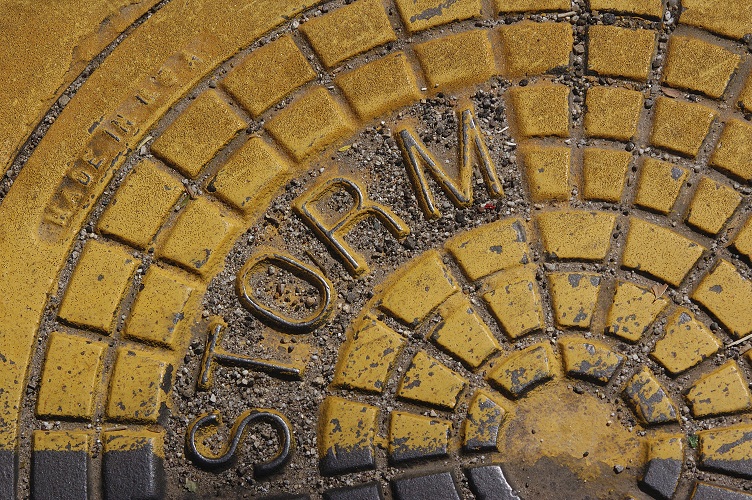
The Massachusetts Department of Environmental Protection partnered with the Massachusetts Statewide Stormwater Coalition to develop a new suite of stormwater-focused public outreach materials. The campaign, Think Blue Massachusetts, aims to make it easier for the 260 municipal separate storm sewer system permittees in the state to meet community education requirements mandated by the U.S. Environmental Protection Agency. Photo courtesy Think Blue Massachusetts.
Massachusetts environmental regulators are making it easier for 260 municipal separate storm sewer system (MS4) permittees in the state to meet public outreach and education requirements set by the U.S. Environmental Protection Agency (EPA). The Massachusetts Department of Environmental Protection (MassDEP) partnered with the Massachusetts Statewide Stormwater Coalition, a group of representatives from 94 municipal stormwater agencies, to develop the Think Blue Massachusetts campaign.
The campaign offers customizable flyers, posters, videos, and webinars for MS4 permittees to use. These materials outline ways homeowners, businesses, industrial managers, and other community stakeholders can contribute to more robust stormwater management. Adapting content from Think Blue Massachusetts enables smaller MS4 permittees to meet their requirements without significant investment in their own campaigns.
“The new campaign is a toolkit to help cities and towns meet the public education and outreach requirements of MS4,” said MassDEP Commissioner Martin Suuberg, in a statement. “The material is available online and can be easily downloaded and customized to reflect a community’s individual needs. It provides one-stop shopping for our local officials who are working hard to meet these requirements.”
Awareness leads to action
MS4 permittees have been required to perform public education and outreach activities since 2003. According to language from the EPA Region 1 2018-2022 General Permits for Stormwater Discharges from Small Municipal Separate Storm Sewer Systems, the goal of the requirement is to “increase knowledge and change behavior of the public so that pollutants in stormwater are reduced.”
To help demonstrate stormwater awareness in action, MassDEP announced the launch of the campaign during an event at Joseph H. Gibbons Elementary School in Stoughton, Mass., the site of a new rain garden and bioretention basins. As part of the announcement, Gibbons fifth-graders demonstrated for the public how the rain garden operates and ways similar low-impact developments could help protect community water resources.
“The newly constructed rain garden and bioretention basins have served as an outdoor classroom for our students, providing us with a real-world model of an infiltration system,” said Lynne Jardin, administrative principal at Gibbons Elementary School. “Students were fortunate to watch the project evolve from groundbreaking to completion. An added bonus to our community is that students are now expressing interest in becoming engineers to help solve world problems.”
Stormwater is a community-wide issue

Each Think Blue Massachusetts outreach aid is geared toward at least one of four targeted groups that affect stormwater management efficacy: homeowners, businesses, industrial managers, and land developers. The campaign outlines specific actions each class can take to contribute to more robust stormwater management. Photo courtesy Think Blue Massachusetts.
Visitors to the Think Blue Massachusetts website can find a crash-course on stormwater basics, covering where stormwater comes from, where it goes, and the connection between household pollutants, runoff, and waterway health.
From there, the campaign offers personalized and specific actions that Massachusetts residents, business owners, real-estate developers, and industrial managers can take to help mitigate stormwater pollution risks.
“A holistic approach to water protection and conservation is paramount to keeping our water supplies clean. By following a few steps and educating our neighbors, we can all work together to reduce stormwater contamination,” said Massachusetts State Senator Anne Gobi (D-Spencer). Gobi is chair of the Joint Committee on the Environment, Natural Resources, and Agriculture.
According to the campaign’s recommendations, which have been adapted into an array of reusable outreach materials, stakeholders at all levels can improve stormwater management by sparingly using fertilizers and de-icers such as road salt as well as watering lawns with no more than 2.5 cm (1 in.) of water per week.
Think Blue Massachusetts materials are available online for use by any U.S. MS4 permittee. Access outreach materials here.







